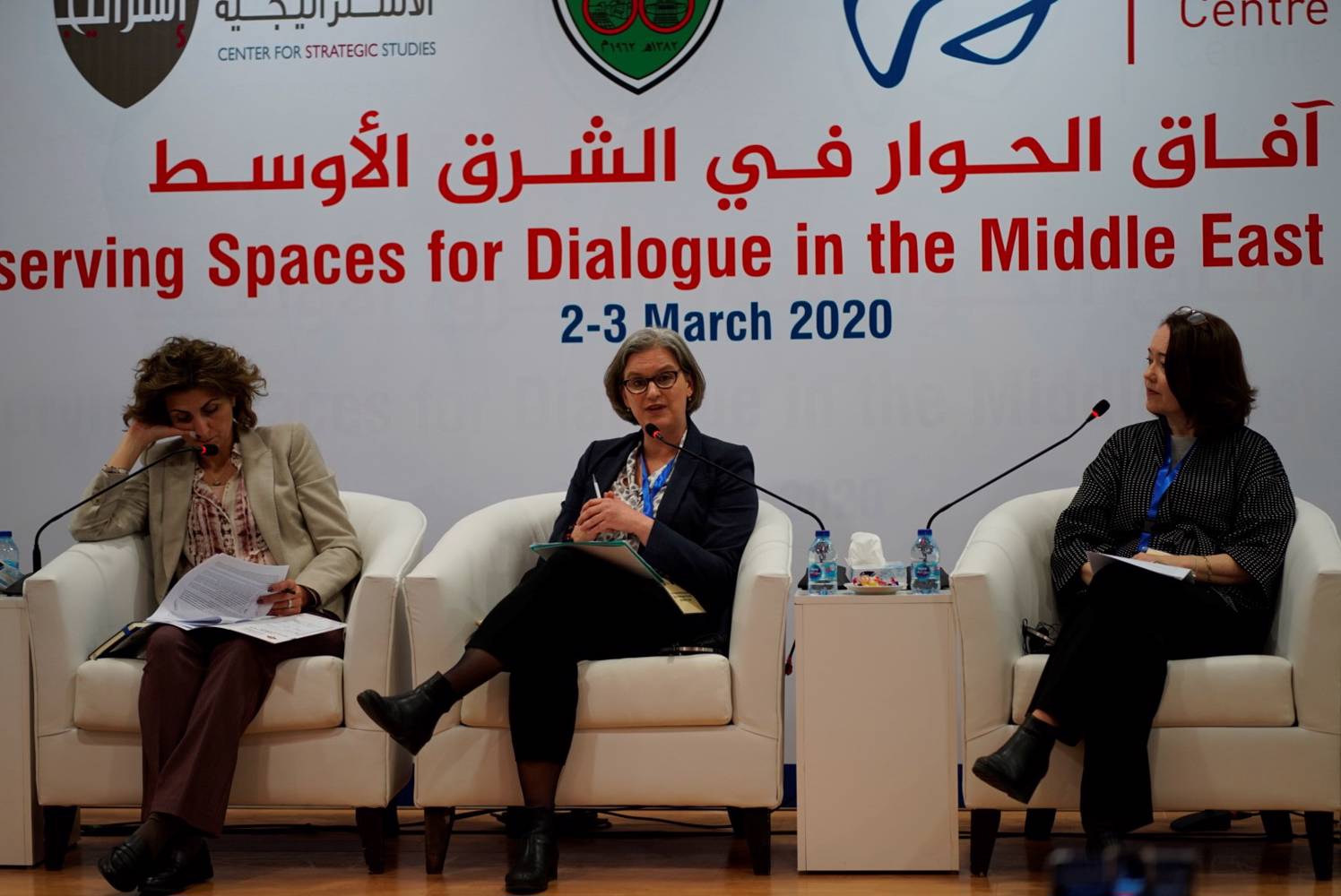
On the occasion of the Royal visit – by His Majesty King Harald V and Queen Sonja – to Jordan 2-4 March, PRIO co-hosted the seminar 'Preserving Spaces for Dialogue in the Middle East' in collaboration with the Center for Strategic Studies (CSS) at the University of Jordan. The seminar took place over two days and aimed at providing a space for academia and key stakeholders to meet. Attendees and participants from Norway included the King of Norway, Minister of Foreign Affairs Ine Eriksen Søreide, and Minister of Trade and Industry Iselin Nybø.
The seminar was divided into four sessions, 'Gender and Preventing Violent Extremism (PVE)', 'Youth Inclusion and Participation in the Middle East', 'The State of Peace and Security in the Middle East', and the high-level session 'Preserving Spaces for Dialogue – Roles for Jordan and Norway'.
PRIO Middle East Centre Director Kristian Berg Harpviken and PRIO researchers Jørgen Jensehaugen, Inger Skjelsbæk, and Pinar Tank contributed to the seminar sessions, as did PRIO Director Henrik Urdal.
In the first seminar session, on gender and PVE, the seminar panelists expressed the need to better understand how women frame their participation in political terms and that policies need to be based on an understanding of women as actors with a political agency of their own. A general point of agreement concerned the complexity of motivations leading women to participate in extremist organisations, and that there is a need for more research to be able to make conclusive statements on women's participation in these organisations.
In the second session, on youth inclusion and participation, the focus of the panelists was on the challenges faced by Jordanian youth, especially economic challenges. The panelists spoke of the importance of inclusivity in political processes and examples were given from the Norwegian experience of empowering youth to enhance their influence on political processes.
The third session, on the state of peace and security, analyzed the emerging threats, as well as the new opportunities, for dialogue in the Middle East. The panelists discussed the avenues available for dialogue in a region undergoing geopolitical shifts, exemplified by the withdrawal of the United States and the mounting engagement of various actors, including Russia, Turkey and Iran. On the Israeli-Palestinian issue, panelists were raising the question of how to engage with the issue when faced with Arab disunity in a fragmented Middle East. This fragmentation is relevant for all conflicts in the Middle East and the session highlighted precisely how detrimental it is for the stability of the region, preventing the development of an overarching vision.
The final session was opened by His Majesty King Harald V of Norway, who thanked Jordan for leading by example in the way it had received refugees fleeing the Syria crisis. This was followed by remarks by both the Norwegian and the Jordanian foreign ministers, followed by an armchair discussion moderated by CSS Director Zaid Eyadat and PRIO Director Henrik Urdal. Both ministers emphasized the good relations between the two countries in working together on common challenges – such as climate change, large-scale migration and armed conflicts – all of which demand an unprecedented level of multilateral cooperation. They furthermore highlighted how, as small states, they were able to pursue dialogue in a way that was beyond the reach of the larger powers.





